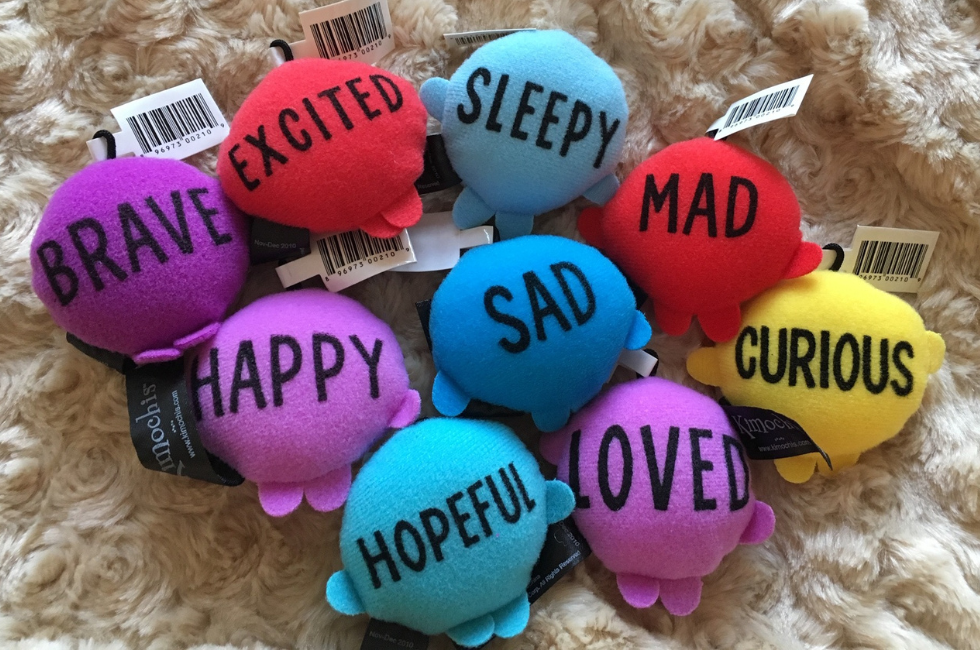Author
Educator
My work is focused on solutions to help students, educators, administrators and community members and their organizations/institutions thrive, not just survive.

My work is focused on solutions to help students, educators, administrators and community members and their organizations/institutions thrive, not just survive.

A recent article in the New York Times observed that doctors often miss post-partum depression. This illness affects not only the new mother but also the infant to whom she just gave birth. And it can affect other members of the household. And, the illness is usually treatable. Think about that for a moment.
In Her Words: Managing Mental Health Lilli Carré
Then, I was watching NFL football and saw the gruesome ankle injury of Dak Prescott of the Dallas Cowboys. And, I saw his tears and his teammates showing support. When you read about his personal road to the NFL, even if there is some hyperbole, you can’t help but think: Wow; this young man hasn’t had an easy journey….and now this. Physical injury yes but mental distress too.
Dallas Cowboys quarterback Dak Prescott suffers devastating injury
Two seemingly unrelated events but both keep circling through my mind.
All of this got me thinking yet again about all the mental wellness issues surrounding the Pandemic. Mental health challenges are arising in all sorts of settings — home, work, community. And, these challenges remain hidden in many instances, not shared for any number of reasons including shame.
We are missing numerous instances of lack of mental wellness in educational settings. Schools were closed (some permanently) and now most are reopening in a myriad of formats. Just these closures and reopenings and changes and potential future shutdowns are hard for students of all ages; we are not good — generally speaking — at transitions. They are hard on educators too.
Many of the events surrounding us hit student “tuning forks,” meaning they evoke past traumatic events. Consider the focus on illness and death. Even if one has not met first hand with a COVID tragedy, we are wearing masks (I hope) and social distancing (I hope), both reminders of the Pandemic. Families with illnesses, deaths and separations in the past will experience these new events differently; old feelings get rekindled.
Children are seeing families struggling financially and with loss of jobs and loss of motivation. Add in racial tensions. Add in political tensions. Add in uncertainty. Life at home (assuming there is a home) isn’t easy for many children. Fighting, addictions, drugs, discord: these are all present. And whatever one’s political persuasion, we are seeing incivility; the debates were but one example of how grown people are not conversing and sharing ideas; they are angry and nasty. Spitting venom comes to mind
Among other concerns, we do not have the usual ways of ameliorating the difficulties in our live: we lack in-person touch. We lack engagement with others; we lack the traditions and outlets that were available to us. For students learning online, they are not connected in the same way to their teachers/professors.
While physical safety is hugely important, so is mental health. And mental well-being has physical impacts too both in the near and longer term. Why is it so hard for us NOT to see mental health as important? What can we do to about this reality? And, to be sure, it is not a new problem. But, it is a problem made worse by the current state of the world.
We can start by recognizing that mental illness should not be stigmatized. That is easier to say than do. Because someone is functioning does not mean that everything is OK. Over-regulated students are seemingly fine but their perfectionism isn’t a sign of mental health; it can be a symptom of trauma.
Pause there for a moment. How often are we unaware of the feelings of others? How often are we unaware of our own feelings and how those feelings contribute to our thoughts and behaviors. Sometimes, we have after-the-fact clarity.
We can help people to recognize what they are feeling. Yes, if you can name it, you can tame it. And, we need to encourage more students to be able to share their feelings. And we need more educators to recognize these feelings and help students, including insuring that they get directed to needed mental health services. This is not a substitute for interventions by mental health professionals if needed. But, we can help others and ourselves if we can recognize feelings. For real.
This may sound trivial but it is anything but. That is why, with Dr. Ed Wang, we wrote The Feeling Alphabet Activity Set. It is available as a downloadable PDF on various sites.
See: Amazon, Teacha and www.karengrosseducation/thefeelingalphabet/.
The point is to enable all of us to identify what we are feeling, both positive and negative. And, it is better if we can find three positive words for every negative word. And, we need to acknowledge that feelings can change and fluctuate — moving up and down a Feeling Thermometer (a really useful tool).

I think what struck me about the post-partum depression opinion piece is the wide impact this illness has — on the mother, the infant, the family including the other children if any. Mental distress is not confined to one person; it seeps into the lives of others. And, with respect to Dak Prescott, I can’t help but think about the long road ahead for him to return to playing shape. And, along with the physical challenges, he will have mental challenges too.
So, for the sake of all of our children, we need to see mental distress as real, as important, as something with which we can deal if we recognize it. What better time than now to start by recognizing our feelings — pleasant and unpleasant ones?
Note: This article originally appeared in Medium at: https://medium.com/age-of-awareness/we-dont-recognize-mental-distress-that-has-to-change-1e23074f2f19